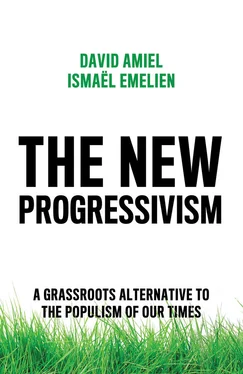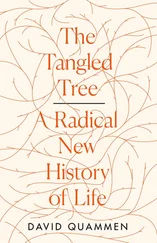Thanks to those who ensured that the past decade spent fighting for the ideas contained in this book was, first and foremost, a story of friendship, especially Stanislas, Cédric, Benjamin, Emmanuel, Julien, Sibeth, Quentin, Stéphane, Ludovic, Jean-Marie, Sylvain, Adrien, Nathalie, Alexander, Clément, Philippe.
Thank you to all the campaigners who have already shown that these ideas are worthwhile only if they are implemented, in particular (but not only!) Jean, Didier, Fanny, Clara, Missak, Juliette, Olivier, Thomas, Victor, Vincent, Thibault, Joé, Julien, Valérie, Christian, Grégoire P., Houda, Pacôme, Bensih, Bruno, Audrey, Aurélie, Mathieu, Zineb, Pauline, Marion, Grégoire D., Arnaud, Fatima, Serge, Selen, Mathieu, Marine M., Étienne, Paul-Hugo, Raphaël, Aziz-François, Marielle, Pénélope, Sandra, Marine B., Etienne, Stéphane, Aigline, Mathilde, Tess, Julie, Maëlle, Alexis, Jean, Christophe, Grégoire A., Pierre, Renaud, Léo, Caterina, Guillaume, Déborah, Éléonore, Schoitchi, Caroline, Frédéric, Philippe. Thank you to all those who enabled this legacy to prosper, at the headquarters of La République en Marche! and in all the territories of France. Our apologies to those who will not find their names here — this would have required several dozen more pages!
In 2017, Emmanuel Macron was elected President of the French Republic. We were among those who helped to plan his En Marche! movement; we were responsible for the campaign strategy and its programme, and thus we both played a very active part in a political venture that most people viewed as impossible, namely the election of a man who had never run for office and who, a year earlier, had no party, no elected officials, no activists, and no funding. In a country marked by record levels of mistrust, we worked for the election of a man who proclaimed his confidence in the ability of ordinary citizens to return to the path of economic, social and political progress. In a country that had voted ‘no’ in the referendum on the European Constitutional Treaty in 2005, we worked for the election of a man who wore his commitment to the European project on his sleeve. In a country falling prey to populists who, both on the far left and the far right, shared a hatred of elites, we worked for the election of a man who had experience both as a banker and as a senior civil servant.
This election demonstrated one thing: the dice can always be rolled again. This is lucky, since the populists seem to have the wind in their sails worldwide: both in the old democracies (France, Italy, Germany, the United States, the United Kingdom, Austria, Sweden, and others) and in ‘illiberal democracies’ (Hungary, Turkey, perhaps now Brazil?) and authoritarian countries (China, Russia, and most of their allies). So, is Emmanuel Macron’s election an accident of history, a statistical blip together with the election of Donald Trump to the White House, Brexit, the triumph of the Five Star Movement and the Northern League in Italy, and the election of Jair Bolsonaro in Brazil? Or is it nothing but a French particularity? We do not think so.
To understand what is happening, it is less important to focus on these populist victories than on the defeats suffered by the old parties. The elections won by the populists are not enough to prove them right, but they undoubtedly demonstrate that the traditional political elites are wrong. They were wrong not to have spotted in time the flaws in the great narrative on which they had concurred since the fall of the Berlin Wall, namely the inexorable connection between democracy, liberalism and the market, in which popular support and economic development went hand in hand. The warning came from Asia, with the creation of a Chinese state, both capitalist and authoritarian; and the issue has also arisen in Eastern Europe, where it is claimed that ‘democracy’ is not the same as ‘liberalism’. There is now a huge question mark hanging over the heart of the Western world, with an American president who rejects free trade and despises pluralism. The elites were wrong not to have understood that the ‘progress’ that seemed obvious to them — technological innovation, the globalization of trade, the extension of individual rights, cultural diversity — in fact only benefited an ever smaller minority of the population. They were wrong not to have seen how vehemently they were being rejected just when they seemed to have triumphed. But they are also wrong, now that they are weakened, just to stand by and watch in stupor as their opponents rise to power. They may cross their fingers in the hope these opponents will run out steam, but they are failing to supply themselves with the intellectual and political means to prepare a real counteroffensive.
The difficulties felt by a growing number of ordinary women and men do not all stem from the same origins, but they all produce the same symptoms: the feeling of having no place in society, of losing control of one’s life and one’s freedom to choose. A huge frustration has been mounting, often in silence. It was initially confined to the most marginal fringes of the population. It then spread to the lower classes, especially the workers. It is now shared by the middle classes. It has accommodated itself to populism, but it can represent an opportunity as it opens up an historic space for new progressivists, even if they are latecomers.
The race is on, and the latter are running short of time. Emmanuel Macron cuts a lonely figure at the table of the UN Security Council, or that of the G20, while the populists have already begun to unite and create their ‘International’ — think of the links between the American alt-right (mainly comprising Trump’s most radical supporters) and the European far right, or the links that have existed for a long time between populists in Russia and in Latin America.
These forces are starting to organize, and we are convinced that Macron’s success will not suffice to beat them. This battle, in France and abroad, cannot be fought by one man, or by one government, or even within one country. It is a political imperative: there are many people worldwide who are experimenting with innovative responses to populism, but they feel isolated. It is also a strategic imperative: the cruel irony of history is that populism rears its head again just when the need to act together across borders has never been stronger. Without a union of progressivists, there is, for example, no hope of curbing global warming or controlling economic globalization.
It was in order to contribute fully to this fight, one that takes place at all levels of society and beyond the borders of France that, after two years spent working as advisors to President Macron, we decided to leave.
Our first priority is to clarify some aims and methods of the new progressivism: this is the goal of the present book, which we wrote in the light of our French experience. For progressivists are no longer entitled, in any country, to make mistakes. We seek to win power, of course — and we here set out some potentially key elements for achieving this. But we also seek to exercise power — something often more difficult for progressivists than for populists.
This seems counter-intuitive. Many believe that electoral victory cannot be won without falling back on the tricks used by the populists: the lie (euphemized as ‘alternative truth’); demagogy; and a virulent nationalism, often tinged with racism. In short, there is a widespread feeling that progressivists cannot win elections unless they ape their opponents. In 2017, Macron demonstrated that this was false: you can win by telling the truth, by avoiding engaging in personal attacks, trusting the intelligence of voters — and even by showing goodwill! You can win, above all, if you put forward a positive, exciting programme, one which touches the citizens’ heartfelt expectations and is not limited to denouncing the madness of populists, or opportunistically welding together mere fragments of the electorate.
Читать дальше












